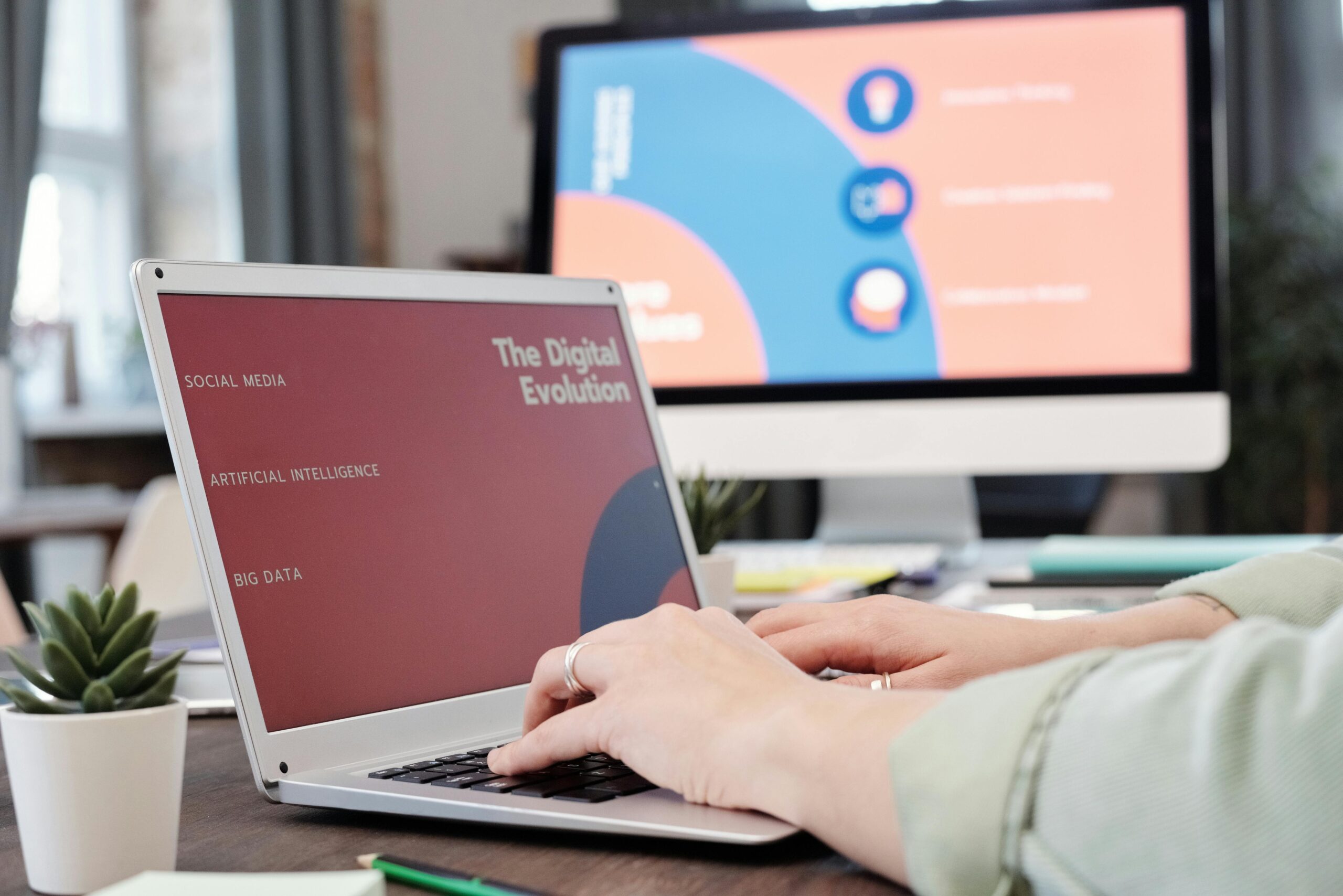The marketing landscape is evolving at an unprecedented pace, and AI in marketing is at the forefront of this transformation. For small businesses, embracing AI-powered marketing is no longer a luxury, it’s a necessity. From automating repetitive tasks to delivering hyper-personalized customer experiences, AI is reshaping how businesses connect with their audiences.
In this blog, we’ll explore how AI in marketing is revolutionizing the industry, the key trends driving this change, and how small businesses can leverage tools like Mr. Banner to stay competitive. Whether you’re new to AI-driven advertising or looking to optimize your current strategies, this guide will provide actionable insights to help you thrive in the future of digital marketing.
The Rise of Automation, Personalization, and Predictive Analytics
The world of marketing is transforming at an unprecedented pace, driven by AI and machine learning. Businesses are now leveraging AI and customer engagement to craft highly targeted campaigns, enhance customer engagement, and maximize their marketing efforts with greater efficiency. The integration of AI in marketing has given rise to three key trends: automation, personalization, and predictive analytics. Let’s dive deeper into each:
- Automation
At the heart of this revolution lies automation. AI-powered tools have eliminated the need for time-consuming manual tasks, allowing brands to streamline operations and focus on big-picture strategies. What once required hours of effort can now be executed in seconds, enabling marketers to dedicate more energy to creativity, innovation, and business growth.
AI-powered tools automate time-consuming tasks like data entry, content scheduling, and ad placements. This not only saves time but also ensures consistency and accuracy. For example, AI-driven advertising platforms can automatically adjust ad bids in real-time to maximize ROI.
- Personalization
The future of digital marketing is being redefined by AI-powered marketing to hyper-personalized experiences. Today’s consumers expect brands to anticipate their needs and AI-driven advertising enables businesses to deliver customized interactions at an unprecedented scale.
With business automation, AI can analyze vast amounts of data to generate tailored content recommendations be it articles, videos, or products ensuring every touchpoint resonates with the audience. This level of personalized marketing with AI fosters deeper engagement and strengthens brand loyalty.
Moreover, AI for content creation is transforming how brands map customer journeys. By predicting behaviors, optimizing interactions, and identifying key touchpoints, data-driven marketing ensures that brands can deliver meaningful, personalized experiences at every stage.
- Predictive Analytics
Harnessing AI-powered marketing to anticipate future trends and customer behaviors allows brands to stay ahead of the curve rather than merely reacting to changes. With data-driven marketing, businesses can make informed decisions, optimize strategies in real-time, and create highly targeted campaigns that resonate with their audience.
AI can analyze vast amounts of data to predict future trends and customer behavior. This allows businesses to stay ahead of the curve and make data-driven decisions. For example, a retail store can use predictive analytics to forecast demand and optimize inventory.
These trends are shaping the future of digital marketing, and small businesses that embrace them will have a significant competitive advantage.
How AI is Changing the Marketing Landscape
The future of digital marketing is being shaped by AI-driven strategies that move beyond simple campaign metrics to a deeper understanding of consumer behavior. Traditional models, while effective in broad segmentation, often fail to capture the intricate customer journey from initial engagement to purchase and long-term loyalty.
In 2025, AI in marketing will redefine how brands interact with their audiences, leveraging business automation, AI-driven advertising, and data-driven marketing to create hyper-personalized experiences. Here are five transformative trends every business should watch out for:
- Chatbots Will Redefine AI-Powered Customer Engagement
Gone are the days when chatbots were simply automated responders. The next generation of AI-powered marketing chatbots will go beyond 24/7 availability and transactional interactions. They will decode emotional nuances in customer queries, offering empathetic and context-aware responses.
For example, Intercom is leveraging AI and customer engagement insights to analyze tone and sentiment. This allows chatbots to detect frustration, hesitation, or excitement, responding in a way that mimics human empathy. Moreover, AI-powered design tools will enable chatbots to craft visually appealing, brand-aligned responses in real-time, making digital conversations more interactive and meaningful.
- Voice AI Will Transform Digital Interactions
As AI-driven advertising and digital marketing evolve, voice-based interactions will become more sophisticated. AI-powered voice recognition technology will not only comprehend words but also emotional undertones in speech, adjusting responses based on a user’s mood and intent.
Take Amazon’s Alexa, for instance. By analyzing variations in pitch, tone, and speech patterns, Alexa can detect urgency or hesitation, tailoring responses accordingly. AI in marketing will leverage similar capabilities, enabling brands to craft more dynamic, personalized marketing with AI that resonates with consumers in real-time.
- AI-Powered Design Tools Will Simplify Ad & Banner Creation
Creating professional AI-driven advertising materials is often a challenge for small businesses. Best AI marketing tools like Mr. Banner are revolutionizing this process by offering AI-powered business automation for banner and ad design.
With Mr. Banner, an AI-powered design tool, brands can instantly generate customized, high-quality banners aligned with their visual identity – colors, logos, and typography. All in just a few clicks. For example, a boutique owner launching a new product can simply describe the campaign (“Create a festive ad for our new holiday collection”), and the AI will generate stunning, optimized visuals tailored to their target audience.
By integrating AI for content creation into marketing workflows, brands can save time, cut costs, and ensure consistency across all promotional materials.
- AI Will Shift Email Marketing from Campaigns to Conversations
AI-powered marketing is moving beyond mass email blasts to personalized marketing with AI that feels like a one-on-one conversation. AI tools will assess user engagement far beyond open rates analyzing subtle passive interactions, such as how long an email remains open or how often a recipient revisits it.
For instance, HubSpot leverages AI-driven advertising to track user sentiment and refine messaging accordingly. If a customer repeatedly opens an email but doesn’t click through, AI can adjust the follow-up message to offer additional value or address potential concerns. This level of data-driven marketing ensures that brands deliver content tailored to each recipient’s behavior, boosting engagement and conversion rates.
5. Augmented Reality (AR) Will Reshape Consumer Experiences
Augmented Reality (AR) is emerging as a game-changer in AI-powered marketing, offering immersive experiences that bridge the gap between digital and physical interactions. Brands leveraging AI-driven advertising through AR can create interactive product demos, virtual try-ons, and experiential campaigns that captivate consumers like never before.
For example, beauty and fashion brands are already using AR-powered tools to allow customers to “try on” products virtually before making a purchase. As AR technology advances, businesses across all industries from real estate to automotive will integrate AI and customer engagement strategies that provide hyper-personalized, interactive experiences.
How AI in Marketing is Helping Small Businesses Thrive
AI in marketing is empowering small businesses to compete with larger players by providing access to advanced tools and insights. Here’s how:
- Cost Efficiency: AI automates tasks, reducing the need for manual labor and lowering operational costs.
- Enhanced Customer Engagement: Personalized marketing with AI ensures that customers receive relevant content, improving engagement and loyalty.
- Data-Driven Decisions: AI provides actionable insights, helping businesses optimize campaigns and maximize ROI.
Conclusion
AI is no longer a futuristic concept in marketing. It’s the driving force behind smarter, faster, and more effective strategies. According to a recent study by The Conference Board, 87% of marketers have either used or experimented with AI tools, while 68% actively incorporate AI into their daily workflows. This shift is not just a passing trend but a fundamental transformation of how brands engage with consumers. Further reinforcing this, a Deloitte Digital study found that three of the top five AI objectives among surveyed companies were marketing-related, underscoring the growing reliance on AI-powered marketing solutions.
The future of digital marketing lies in automation, personalized marketing with AI, and AI-driven advertising that optimizes campaigns in real time. AI for content creation, predictive analytics, and data-driven marketing empower businesses to engage customers more effectively while streamlining operations.
One standout example is Mr. Banner, an AI-powered design tool that enables small businesses to create professional-quality promotional materials without the need for graphic design expertise. By integrating AI and customer engagement strategies, tools like Mr. Banner allows entrepreneurs to focus on their core operations while AI handles the creative heavy lifting.
Explore Mr. Banner today and discover how AI-powered design tools can revolutionize your business automation strategy, making marketing effortless and more impactful than ever.

